A Q&A with Maximina Hernández Reyes, who credits her success to a Portland, Oregon, food network called Rockwood Food Systems Collaborative.

A Q&A with Maximina Hernández Reyes, who credits her success to a Portland, Oregon, food network called Rockwood Food Systems Collaborative.
August 20, 2024
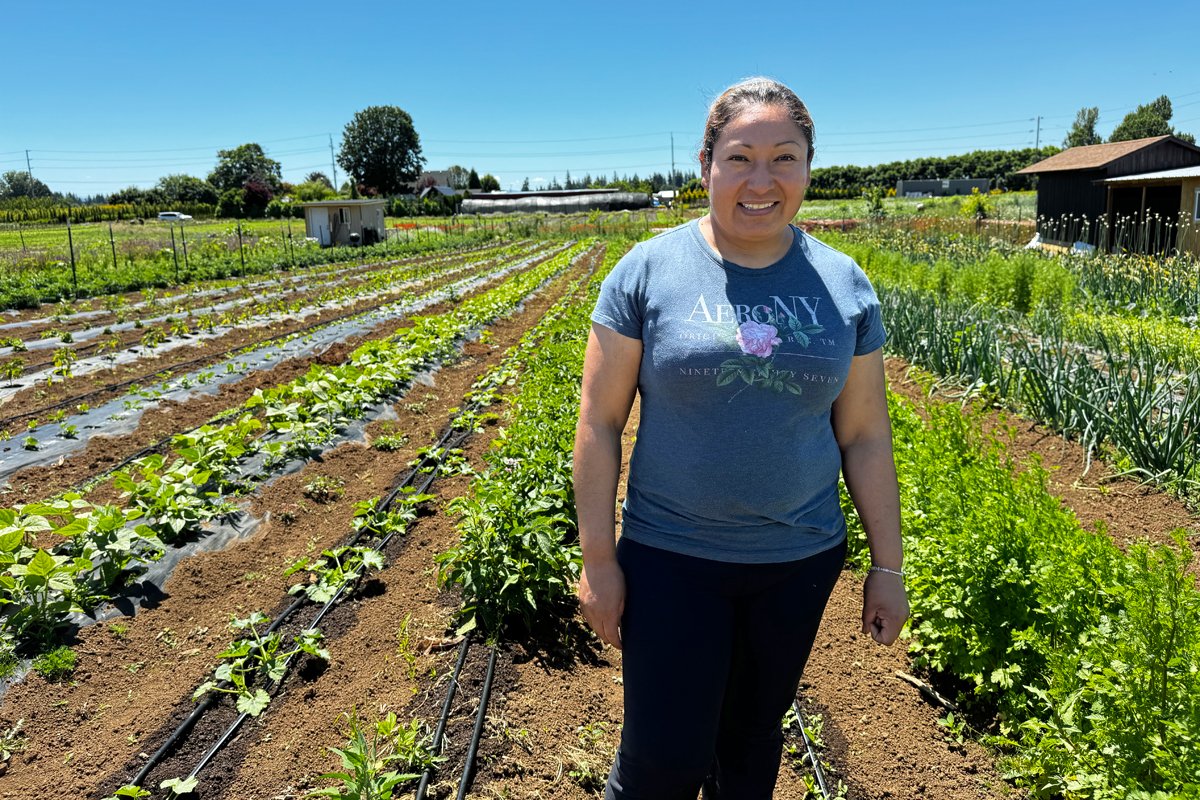
Maximina Hernández Reyes pictured at MR. Farms in Boring, Oregon. (Photo credit: Elizabeth Doerr)
When Maximina Hernández Reyes emigrated from Oaxaca, Mexico, to Oregon in 2001, she was still learning English, had no idea where the food pantries were, and knew very few people. She struggled to find a support system in Gresham, the suburb of Portland where she settled, until 2012, when she happened upon a community garden in the city’s Vance Park.
Hernández Reyes grew up subsistence farming with her parents in Oaxaca, and the garden spoke to her. She called a number posted nearby and reached Adam Kohl, the executive director of Outgrowing Hunger, an organization that rents unused land at accessible costs to help immigrants and refugees grow their own food. Hernández Reyes was able to secure a small plot in the community garden and started growing food for her family. This was just the beginning.
Over the next decade, gardening evolved from a hobby to a passion for Hernández Reyes, but it wasn’t how she earned her income. While she worked her way up at McDonald’s, eventually becoming a manager, she gardened on the side as a way to provide her family and neighbors with fresh produce. Eventually, she became a community leader through her work in the garden; her original plot is now an educational site where she teaches gardening to other Latinas.
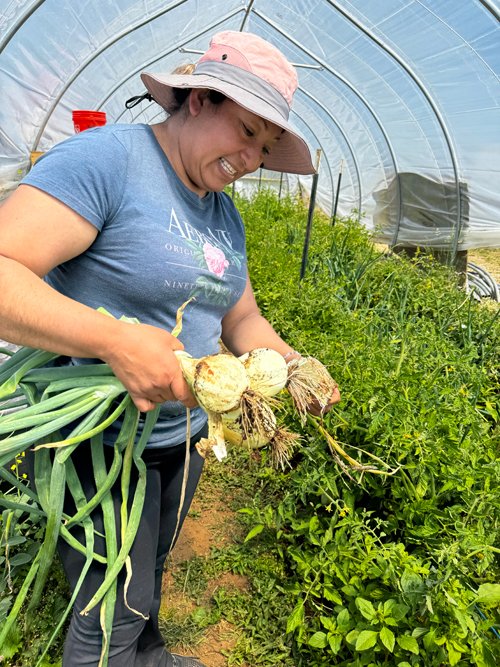
Maximina Hernández Reyes grows a range of produce, including many types of vegetables and herbs found in her home state of Oaxaca, Mexico. (Photo credit: Elizabeth Doerr)
Two years ago, Hernández Reyes had the opportunity to scale up her own growing operation and turn it into a source of income. She is now in her second season of managing a one-acre farm that Outgrowing Hunger leases in the nearby town of Boring, Oregon. While she named the operation MR. Farms after her initials, she has leaned into people misreading it as “Mister.” The business has been so successful that she was able to quit her job at McDonald’s last year and has transitioned from feeding her family to feeding—and mentoring—her whole community.
Hernández Reyes attributes her success at this food sovereignty endeavor to the support of a network called Rockwood Food Systems Collaborative (RFSC), part of a larger organization called Rockwood Community Development Corporation, which focuses on underserved areas of East Portland and Gresham. RFSC is comprised of nearly 30 organizations, including social services, food justice initiatives, and health and educational institutions.
Traditionally, food security organizations receive food from anywhere they can get it, and because donations are rarely from local growers, the system often results in processed foods and a reliance on the precarious global food system. The collaborative model, rather than providing one-way charity, is focused on mutualism and community care. Partnerships with local growers create a market that supports farmer entrepreneurship; community members receive fresh produce; and the system is more resilient to global food shortages.
“When people see these vegetables in the farmers’ market, they get really excited. They say, ‘I haven’t seen these in many years!’ or ‘I’ve been looking for these.’”
At Rockwood, when someone shows a knack for farming, especially when it benefits their community, someone from the collaborative connects them with various member organizations that can help them access resources and connections to build a successful farm business. When Hernández Reyes got involved, Outgrowing Hunger provided her with land and put her in touch with the Oregon Food Bank, which buys her vegetables for their pantries, and Rockwood People’s Market, a BIPOC-led farmers market in Gresham, where she sells produce every Sunday. She and other growers are also able to sell produce to local community members, who pay with tokens provided by food systems partners, the local low-cost health clinic Wallace Medical Concern, and the youth services organization Play Grow Learn.
The Rockwood Food Systems Collaborative is one of hundreds of similar networks across the U.S. that are serving as a model for a more resilient food and health system. Others include Hawai’i Food Hub Hui, Cooperative Food Empowerment Directive, and the Mississippi Farm to School Network. Leveraging social capital between and among institutions, these networks, along with community members themselves, create an alternative local food system. This can be particularly powerful for immigrants and U.S. noncitizens, who are twice as likely to be among the 44 million people in the U.S. facing food insecurity.
Civil Eats recently spoke to Hernández Reyes about her journey toward this collaborative model, the organizations that supported her new business, and how growing food offers freedom to immigrant families.
What do you miss most about your home in Oaxaca?
What I miss are the simple things like traditions, family, and my culture. That was before. But now we’ve built the same community here and brought our traditions here. My vegetables are part of those traditions.
At first, they only grew a little bit because I only had one plant from the seeds I brought with me. But we saved the seeds and acclimatized them and now we have more of our traditional vegetables to share with my community: tomatillos and Roma tomatoes (but not like the ones you get from the grocery store; they’re better), green beans from my state, types of Mexican corn, and pipicha, pápalo, and epazote [herbs used in traditional dishes in central and southern Mexico]. When people see these vegetables in the farmers’ market, they get really excited. They say, “I haven’t seen these in many years!” or “I’ve been looking for these.”
What is your role in the Rockwood Food Systems Collaborative and how have these connections helped you?
I was volunteering during the pandemic with Outgrowing Hunger to distribute food boxes to families. Through that, I met people from Rockwood CDC, Play Grow Learn, Metropolitan Family Service, and a lot of other organizations. Then I got involved with Guerreras Latinas [an empowerment program for Spanish-speaking Latinas] where I taught gardening through a program called Sembradoras, which was supported by funding from the Oregon Food Bank.
The connections benefit my business. When the organizations have grant money, they can purchase some vegetables from me—that way, they help me, and then I help the community. There’s this cycle. I want to keep my vegetables in the community; I don’t want to send my vegetables to the huge stores.
How did you get your business off the ground?
I started my business when I saw that my community needed the kinds of vegetables that I grow. And I was thinking, how could I sell my vegetables? I talked to Lynn [Ketch, executive director] from Rockwood CDC, and she asked why didn’t I make it a business. And I said, ‘Yes! Why not?!’ I was a gardener before, but I wanted to get to the next level of farming. I’m motivated to work hard because I want to serve my community; I want to grow more food.
“When the organizations have grant money, they can purchase some vegetables from me—that way, they help me, and then I help the community. There’s this cycle.”
At first, we didn’t have enough money to pay the rent on the land at Outgrowing Hunger. So, Adam gave me some options where I could pay after three to four months of selling vegetables. He always had somebody to help when we needed it and connected me with other organizations.
Another support was the Oregon Food Bank. Because it was my first year of farming, they gave me support by buying my products to give out in the food pantry. They pay you upfront, so with that money, I started to buy the irrigation and everything. Another organization, the Metropolitan Family Service, bought a small amount of vegetables, which helped, too.
Does growing food and the connections to the Food Collaborative offer freedom to the immigrant families in your community?
Yes, it helps a lot. Here at Outgrowing Hunger, the price for rent is not that high. And Outgrowing Hunger helps us apply for grants. There isn’t a lot of space for people to grow their own food at home, so the land for gardening helps so much. But, we need to educate people about how and where to grow fresh vegetables.
The collaborative has helped bring more information to people. For the people who can’t grow their food, the organizations buy the food, and community members receive tokens for free and can get fresh food from the farmers’ market. There are a lot of benefits—people’s hearts are better, they’re healthier, and they have less stress. There’s a lot of freedom in that.
How has working in this kind of collaborative model been different from what you experienced when you first arrived in the U.S.?
There’s a big difference. At some food pantries, they asked for your address, social security information, and documentation. Immigrants were scared to go there, because they would have to share all their information. It was also hard to find out where those pantries were. Now the food pantries don’t ask for that. But also, because of this group of organizations, there’s a lot more information about where people can get more food.
I experienced challenges before I found the collaborative. Organizations didn’t have enough Spanish speakers, and there wasn’t a lot of information available. It was hard to make connections. I also didn’t know my neighbors very well. But now, with this group of organizations, it has changed. They all have Spanish speakers, and there is a lot more information about resources available.
What kinds of community members have you met through your work with farming and the food systems collaborative?
I’ve met a lot of people since I’ve started volunteering here, and I made all these connections around my neighborhood. I talk to people and tell them what I’m doing and how I grow vegetables, and I bring them in that way. I’m building community through food. With Outgrowing Hunger, when I got started, we had two Latinos, and now we have 30 Latinos. I talk to them: “You can apply for this; you can get this resource.” I have WhatsApp, and when I learn of opportunities, I share.
One of those families was telling me they didn’t have enough money to buy food. This one woman said she tried to go to the food pantry, but they asked for all these documents. I told her, “I have some vegetables in my garden,” and she was so happy. I asked her why she didn’t have any money, and she said her husband was sick and it was just [her] working, and their rent was so high, and they have three small children. I connected her to Outgrowing Hunger, and she applied for that space in the garden, and she started growing her own vegetables.
What are your hopes for the future?
Oh, my goodness. So much. My dream is to grow my farm, to implement jobs for immigrants or anyone who wants to work. To produce more. Right now, it’s a family farm: my husband, my kids, my brothers, people in the community. I really want to build a program to give jobs to moms in the summertime. They can bring their kids and come to work. I keep thinking and thinking—and I want to do everything!
This interview was conducted in English and Spanish and has been translated and edited for length and clarity.
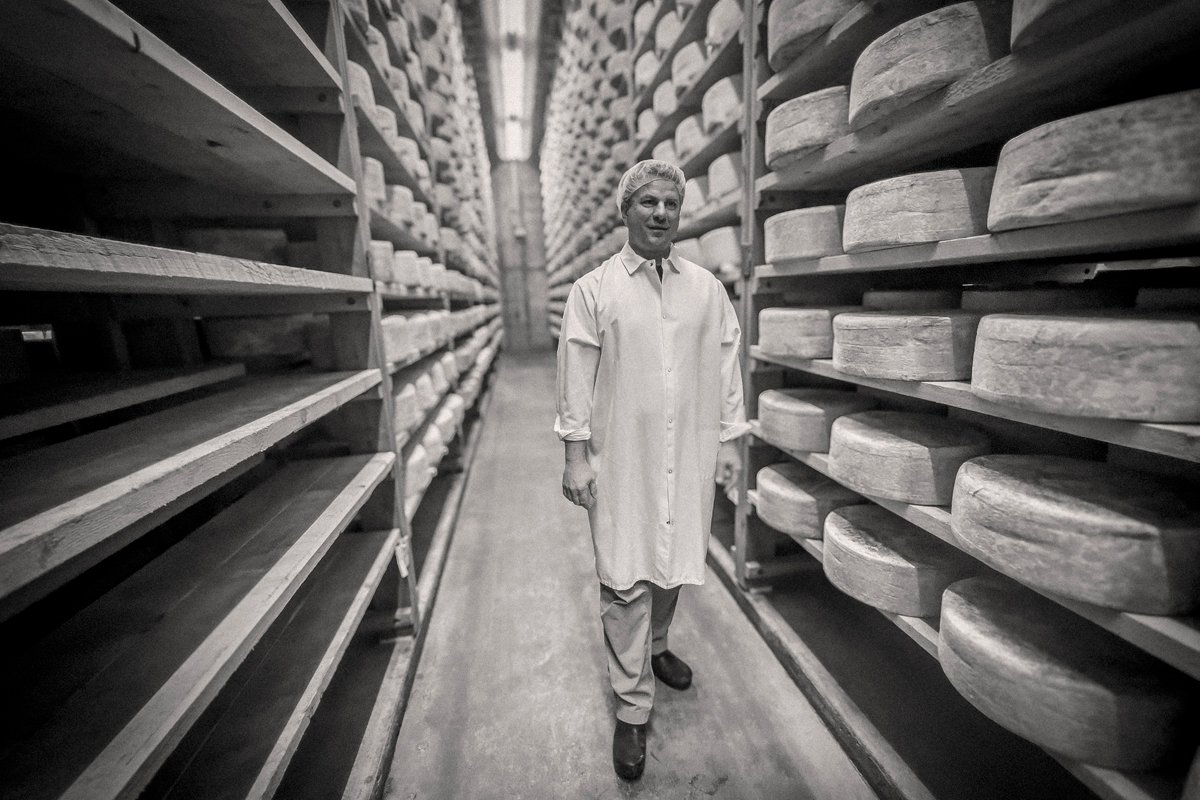
September 4, 2024
By paying top dollar for milk and sourcing within 15 miles of its creamery, Jasper Hill supports an entire community.
September 3, 2024
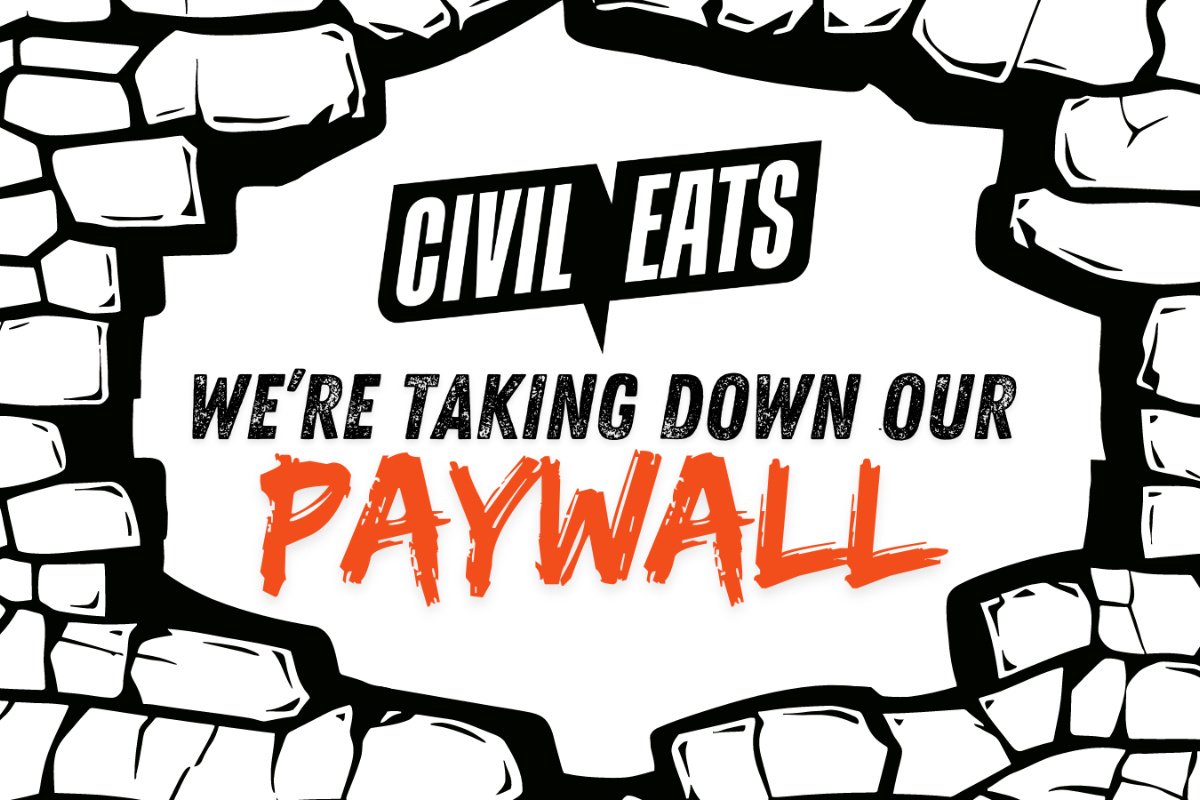
August 27, 2024

August 26, 2024
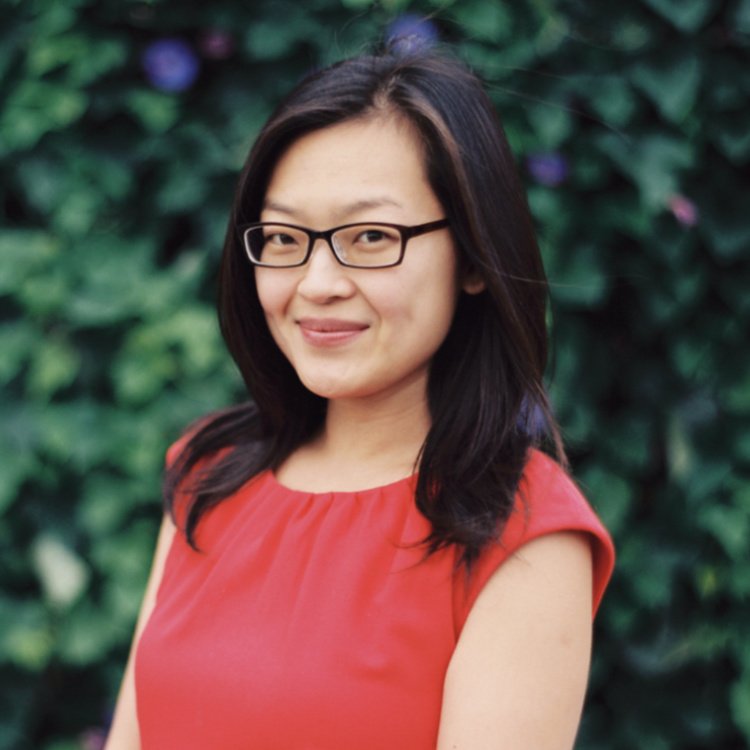
August 12, 2024
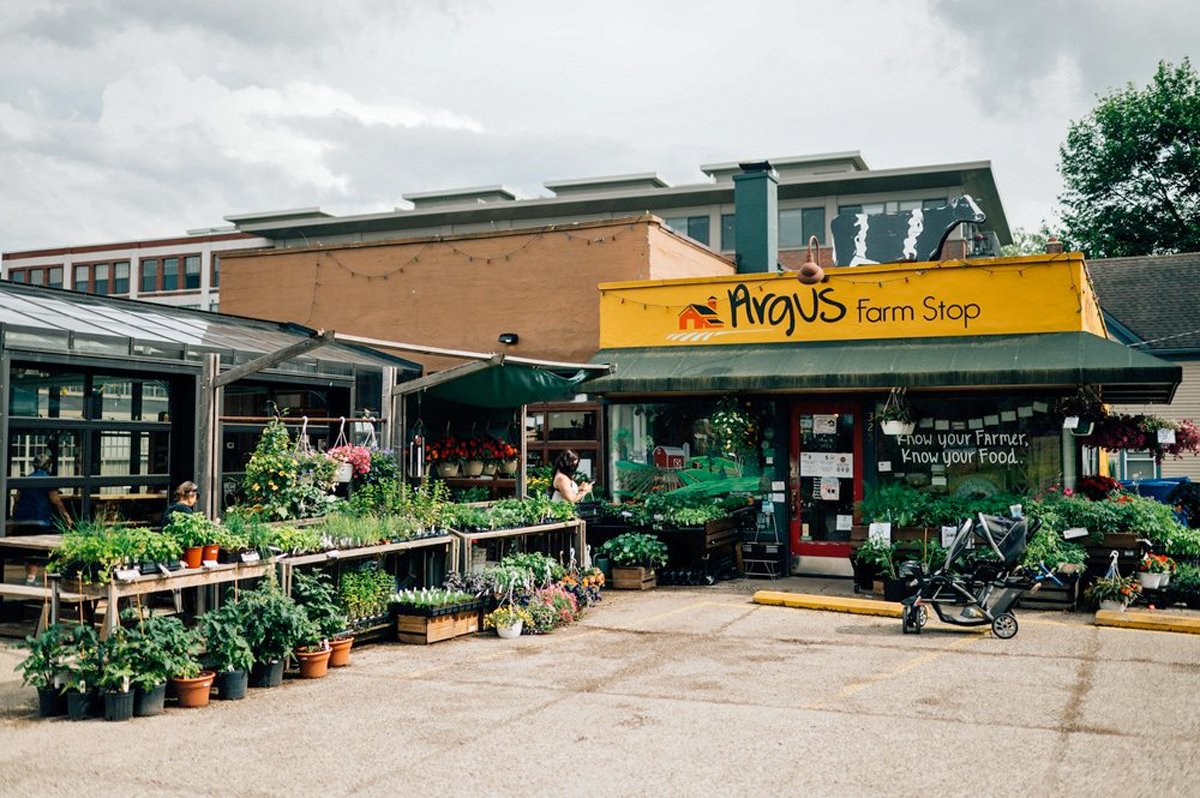
Like the story?
Join the conversation.